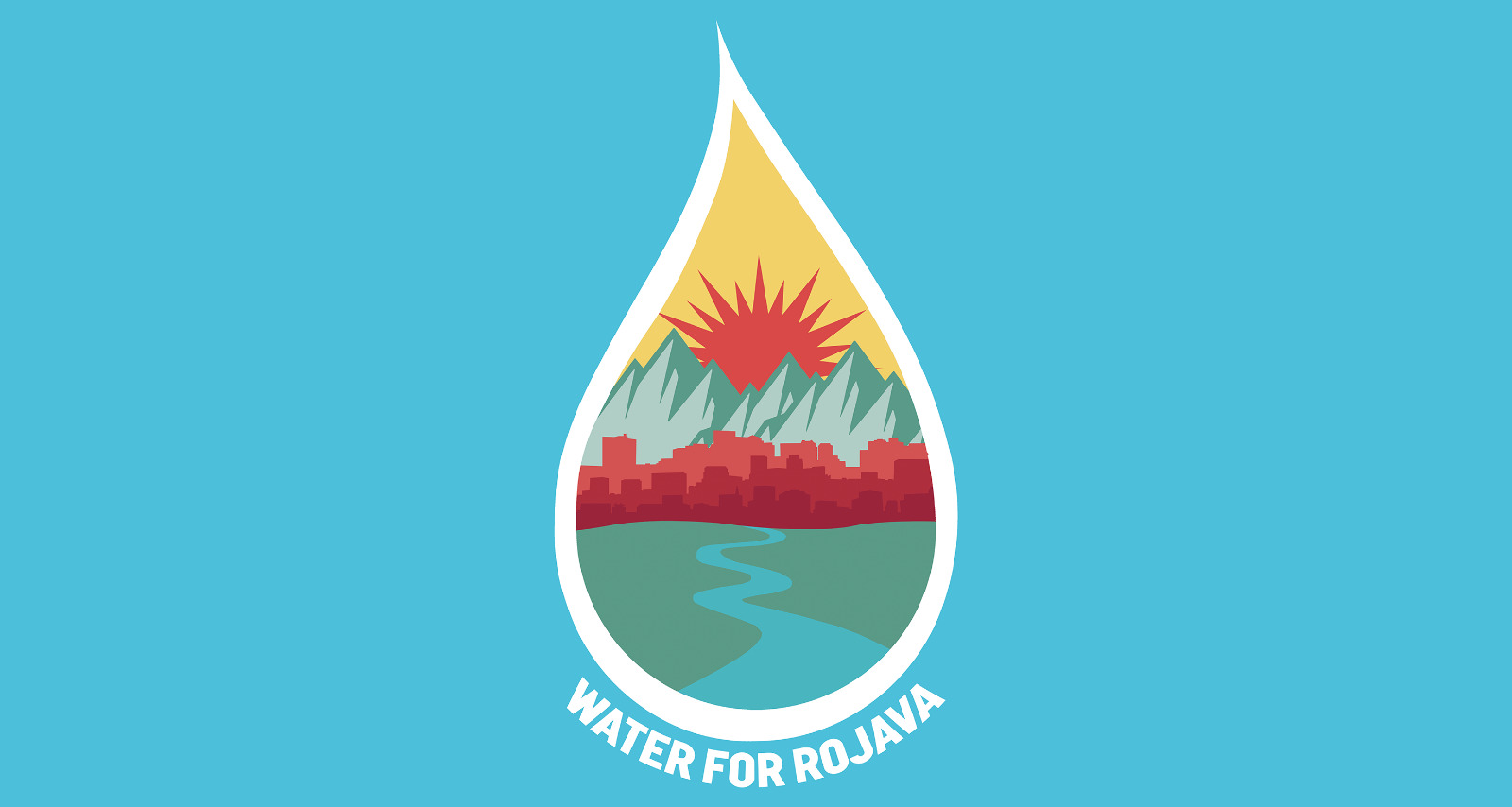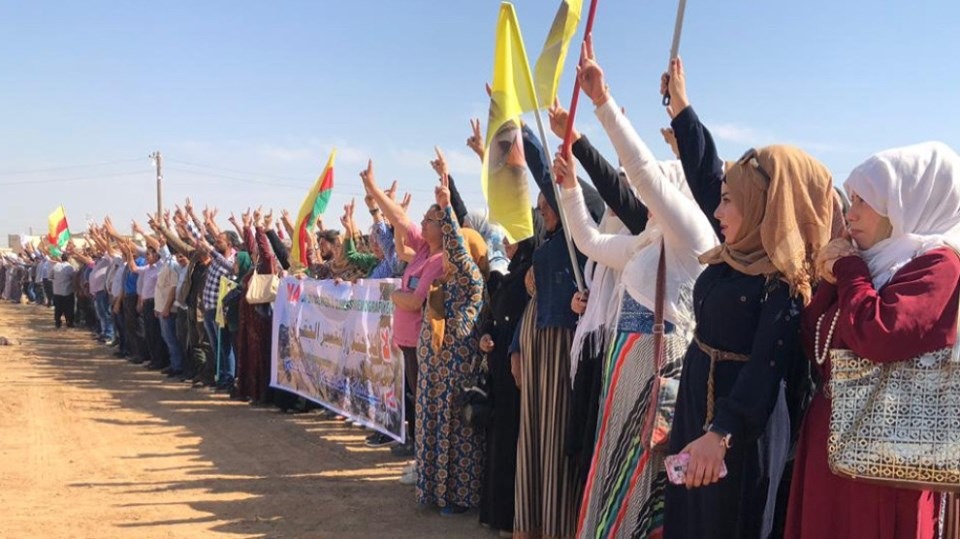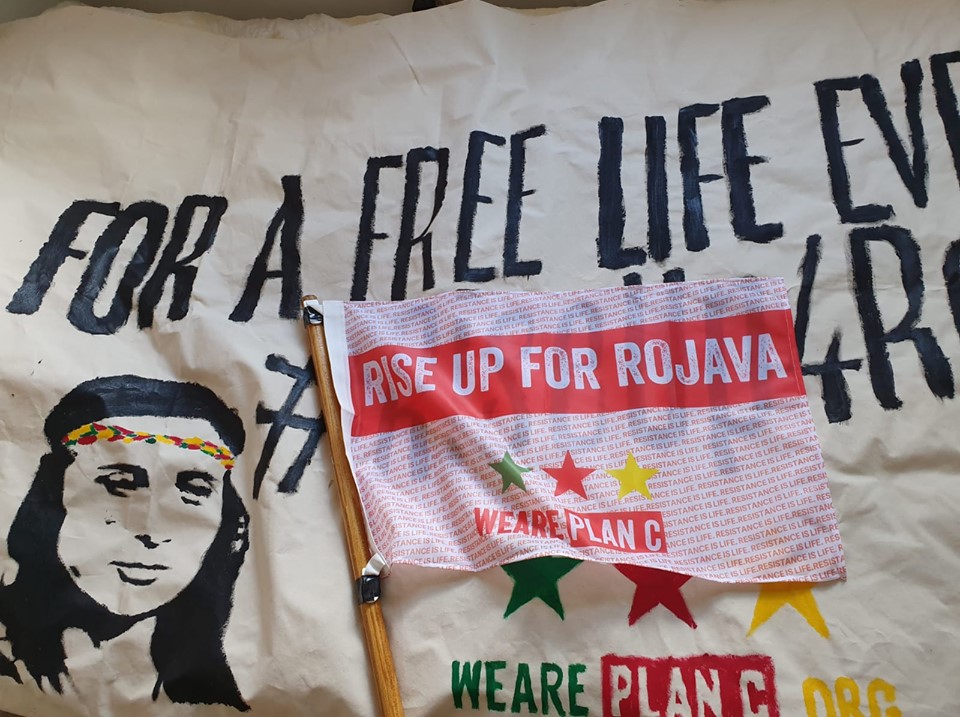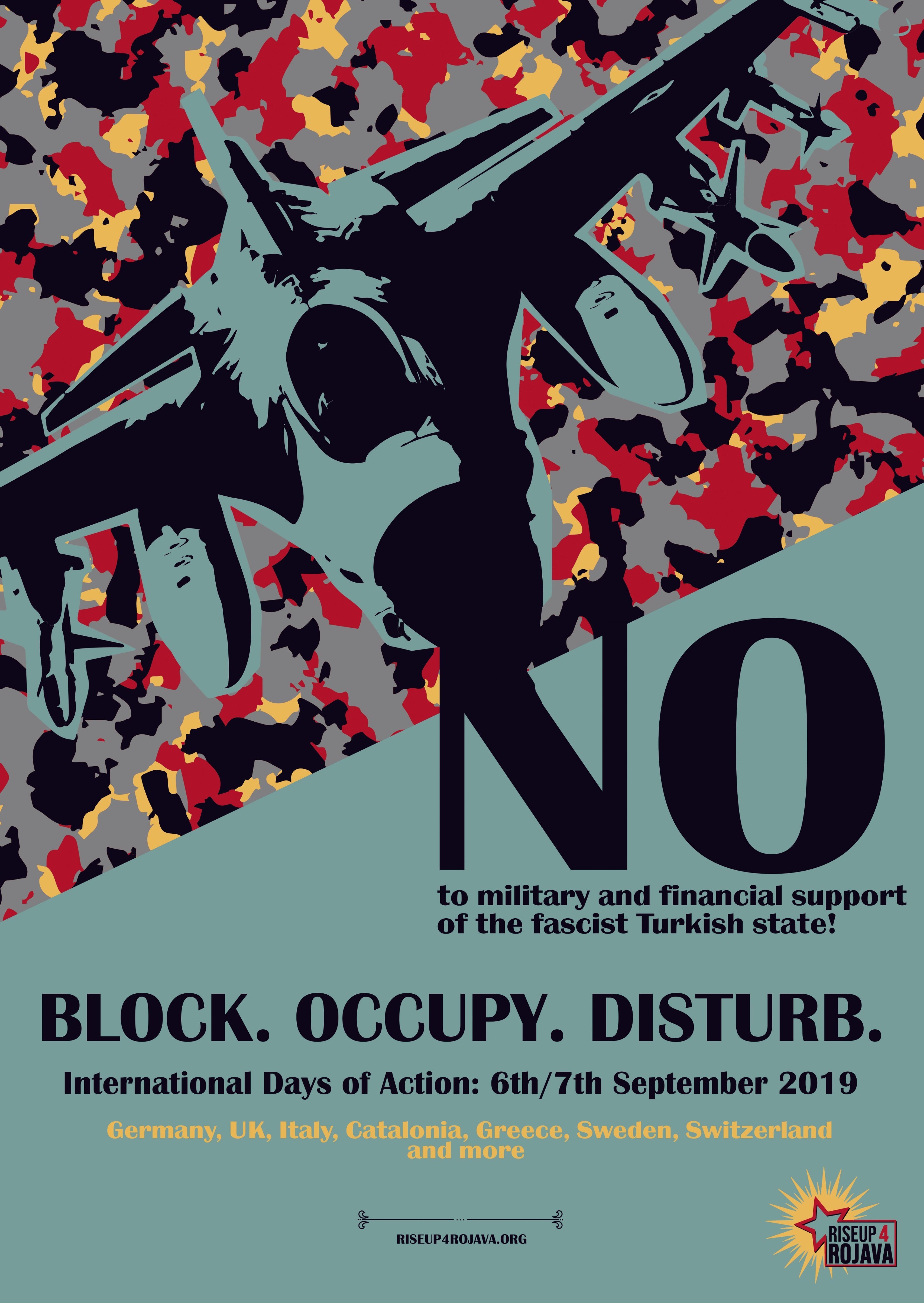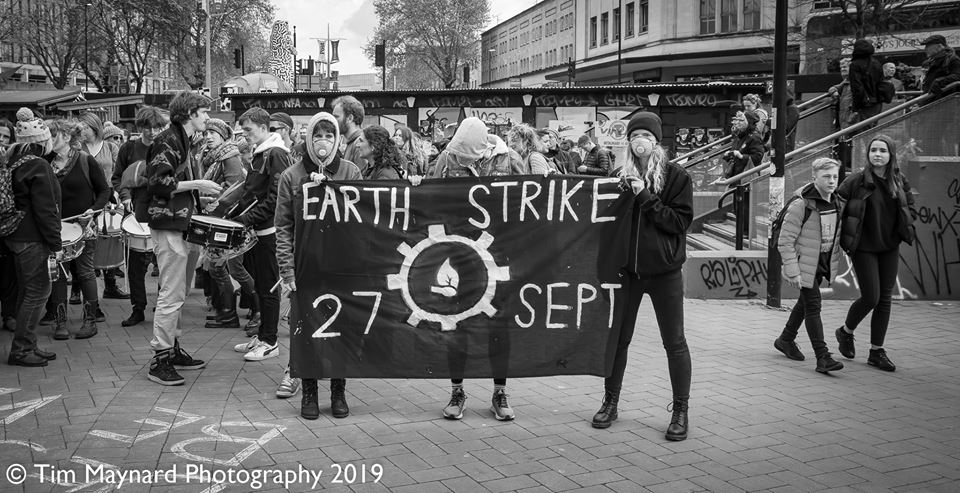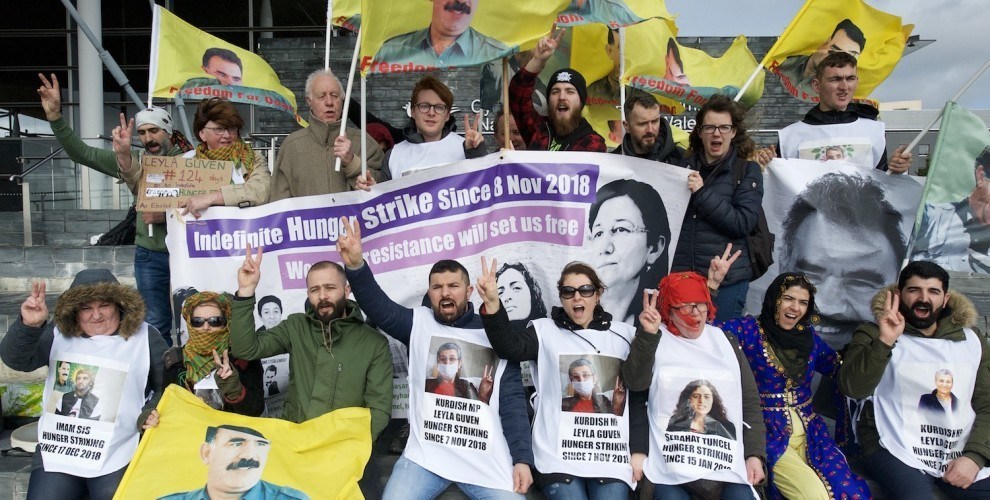We write this in the context of ongoing attacks on left wing social movements in Turkey and Rojava by the Turkish state. Most notably, on October 10th at least 102 members of a peace demonstration in Ankara were killed in a double bombing. Whilst the attackers appear to have been Islamists, blame is also being laid firmly at the feet of Prime Minister Erdogan’s AKP party and the military deep state. Whilst the ambulances were being blocked by Turkish riot police in the streets of Anakara, military jets were already preparing their response: co-ordinated strikes on PKK military bases. At the time of publishing this statement it has been reported that the Turkish military has fired shots at security forces across the border in Rojava. The escalating violence from the Turkish state is a clear response to the changing to the growing political opposition in Turkey, which is itself connected with developments taking place in Northern Syria, also known by the Kurdish name of Rojava, since the outbreak of the vicious civil war there in 2011.
Positive political developments have been taking place within the Kurdish movements, and in particular its largest organisation the PKK/KCK, for several years. The PKK, historically a traditional Marxist-Leninist organisation, has been the site of a large political re-orientation towards a different kind of politics: “democratic confederalism”, a politics which seeks ‘self-determination’ without demanding a state, places importance on local councils and assemblies, and prioritises feminist, ecological, and secular values. This shift in ideas and priorities for the PKK and its sister organisations has found a physical expression in the Rojavan Cantons, an autonomous region in Northern Syria which has established three regional ‘power bases’ during the civil war. As yet these regions remain internationally unrecognised by the United Nations. These political developments have echoed back across the border into Turkey and were one of the factors leading to the left wing and pro-Kurdish Peoples’ Democratic Party (HDP) gaining significant ground electorally and a series of regional assemblies in Southern Turkey – in turn leading to increased state repression.
It wasn’t until the desperate battle to save the Rojavan city of Kobane from ISIS last year that these developments stormed onto the front pages of the Western media. With the support of US air strikes the defence forces of the YPJ and YPG (supported by international volunteers) moved onto the offensive and, at the time of writing, have almost succeeded in linking all three cantons into one continuous zone. The Rojava experiment faces many obstacles, externally it is fighting against ISIS forces and withstanding Turkish airstrikes, whilst internally it is operating within a traditionally conservative society with few funds or resources. Whilst many commentators are keen to point out the social advances being made in the region, less information and commentary is available on economic developments. Rojava is a historically under-developed agricultural region in Syria and its lack of international recognition is hindering any ability to utilise its major natural resource, oil, for development. We do know that three economies are in operation; a war economy which guarantees subsidised bread and oil for all; a co-operative economy which appears to be slowly developing; and a private, capitalist economy which the PYD are encouraging with calls for foreign investment. We must view the developments in Rojava in their totality, the split between “politics” and “economics” is a myth. Whilst starting from a difficult and under-developed position, the direction in which economic development in Rojava happens is a key political question in evaluating its development.
The response to this experiment here in the West has revealed two kinds of idealists in the libertarian revolutionary left. Those that believe the struggle underway in Rojava is politically pure and an expression of an anarchist politics now translated into the real world, and those who have abstained from engaging with this struggle on account of its lack of political purity or fidelity to libertarian ideals.
We are under no illusions, the processes underway in Rojava are politically complicated and, like all social struggles, there is much to be engaged with and critiqued. But the purpose of any critique of what is happening in Rojava should not be a simple expression of disapproval or abstention but rather should serve as a mechanism to reveal the contradictions that need to be resolved for the experiment in Northern Syria to move further forward. We are as critical of those that compare Rojava to an idealised anarchist utopia and, finding reality lacking, declare their abstention from the struggle, just as much as we are critical of those idealists that see Rojava as already being this utopian place. We know we are not witnessing a fully formed communist or anarchist society, that Rojava is not yet governed by autonomous local communes, nor have the relationships of capital which structure this world been subdued or abolished. We also have questions as to how deep and widespread the transformation in the PKK/KcK politics towards “democratic confederalism” is. We are not uncritical cheerleaders of everything taking place within Rojava or that which emerges from within the structures of the social movements there, yet we do see this as a significant political struggle in which comrades in Turkey, Syria and across the region need our support.
As the Turkish state continues to target both Kurdish and Turkish progressives with the support of the United States, and Putin’s intervention appears to be benefitting both ISIS and Assad, it is clear the struggle in Rojava needs support if it is to continue developing and expanding. The developments in Rojava have echoed back across the border into Turkey and were one of the factors leading to the left wing and pro-Kurdish Peoples’ Democratic Party (HDP) gaining significant ground electorally and a series of regional assemblies in Southern Turkey – in turn leading to increased state repression. But these forms of organising and struggle will need to both continue deepening and expanding.
We began some tentative solidarity work in the days around the battle for Kobane in 2014. As the struggle continues to evolve in Rojava, and appears to spread northwards into Turkey, we are planning to take our next steps. Whilst this is not the sole focus of our organisation’s political activity, Plan C have formed a national cluster (a working group composed of Plan C members from across our national membership) to work on this topic, and to begin political activity in solidarity with the struggles in Rojava against Islamist fundamentalism, the brutality of the Assad regime and the inadequate and wholly inappropriate responses of the ‘international community’. We are inspired by the feminist, secular and democratic experiments in Rojava and seek to foreground and platform these developments. We are also inspired by the solidarity the international left has already shown with Rojava, from large fundraising initiatives to the volunteers that have visited the region to offer their skills, many having paid the ultimate price already. We want to offer what, limited, solidarity we can as a small communist organisation in the UK.
Given the size of our organisation and the capacities of the wider British left, this is not an easy task. We aim to begin with modest aims and targets and develop our capacities as we go. Our first aims are to:
1) Build contacts and relationships with organisations and individuals active on this topic within the UK and beyond.
2) Begin producing and disseminating information materials on developments within Rojava and Turkey. We aim to begin this with a national speaker tour in late November.
3) Begin our first fundraising campaign. We plan to begin small and then raise our goals as we develop. For our first campaign we plan to raise £3000 by January, with £2000 going to Rojava and £1000 to Kurdish structures here in the UK.
4) Expand our capacity in order to be able to mobilise in the streets in solidarity with Rojava and progressive struggles against the Turkish state.
If you are already organising around this topic or would like to help us then please get in touch at info@weareplanc.org
Rojava Solidarity Cluster


